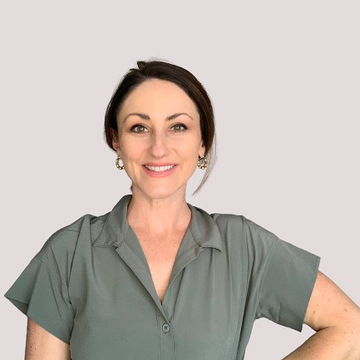Nursing School Classes: The Essentials

Are you thinking of pursuing nursing as a career, but don’t know what your nursing school classes will be like? Do you worry the classes will be far too difficult? Wondering if it’ll be heavy on biology and chemistry?
You’re in the right place. Getting a sense of what to expect before you begin can help you excel once you get there. When it comes to nursing program classes, they can be divided up into two main categories: pre-nursing and nursing classes.
How Long Is Nursing School?
Nursing school can take anywhere from 11 months to four years, depending on the degree — associate degree in nursing (ADN) vs bachelor of science in nursing (BSN) — and program you’re pursuing. A BSN degree will take about four years to complete, compared to two years for a BSN. Here are options for fast-tracking your degree:
- Accelerated programs
- Bridge programs
- Direct-entry programs
Pre-Nursing Classes
So what classes do nurses take in college? Depending on the degree, school, and program you choose, your pre-nursing classes may be different. Generally speaking, these classes are common requirements for nursing school.
Some nursing programs will require that you complete these pre-nursing classes before you can apply to nursing school. Other nursing programs will allow you to take them along with your nursing school courses, as long as you have completed them by graduation.
General prerequisite nursing classes include:
- Anatomy and physiology
- Biology
- Chemistry
- Introduction to psychology
- Introduction to sociology
- Algebra
- Probability and statistics
- Human growth and development
- Pathophysiology
- English and composition
Nursing School Classes
Your core nursing school classes will typically be the same from program to program, as each nursing student must be prepared to take the national nursing licensure exam, the NCLEX-RN.
Other nursing school classes may be specific to BSN program, such as nursing research, scientific writing, and leadership and management.
1. Nursing Fundamentals
This course sets the foundation for a student’s future nursing practice. Students learn the basics of patient care and nursing skills, how healthcare works, roles for nurses, and potential career choices for nurses. This is typically one of the first nursing school courses.
2. Advanced Anatomy and Physiology
This class builds on the prerequisite anatomy and physiology course. Nursing students learn about complex body functions, interrelationships between body systems, etiology and pathogenesis of altered health states.
3. Advanced Pathophysiology
Pathophysiology is the study of disease. Students learn how a disease, condition, or injury affects a person, including physical and functional changes that occur as a result.
There is usually not an associated clinical rotation with this course. Instead, pathophysiology is incorporated into the study of all conditions the nurse learns about. This class may only be present in BSN programs.
4. Health Assessment
Students learn how to perform comprehensive health assessments, retrieve health histories, and identify health problems. This course may be combined with a lab component so nurses can master the nursing process and head-to-toe assessments.
5. Microbiology
Microbiology is the study of living organisms too small to be seen with the naked eye. Nursing students learn about bacteria, viruses, and fungi; the human biome; microorganisms that cause disease; and the importance of microorganisms in health. It includes a lab course. This class is sometimes a prerequisite to nursing school.
6. Gerontological Nursing
Gerontology is the study of older people. Nursing students learn about the effects of aging, health conditions that affect older adults, and how to manage them. It covers acute, rehabilitative, and residential care for older adults. This course requires a clinical rotation.
7. Mental Health Nursing
This nursing school class focuses on behavioral and mental health. Nursing students learn about the pathophysiology of mental health conditions, their management and treatments, and communication skills to care for this population. This course requires a clinical rotation.
8. Pharmacology
Pharmacology is the study of medications and how they affect biological systems. Nursing students learn about major medications, their indications, common side-effects, therapeutic doses, and medication interactions. Students will also learn the five rights of medication administration.
This course does not usually have a clinical rotation, as pharmacology is studied and practiced in the other nursing courses and rotations.
9. Maternal Child Health
This class focuses on the care of antepartum and postpartum women and newborns. Nursing students learn about the major conditions and complications associated with pregnancy, postpartum, and newborns, and their management. This class requires a clinical rotation.
10. Nursing Leadership
This class focuses on how nurses can serve as leaders in their profession, community, and career. Nursing students learn about different leadership styles, team-building, concepts of quality improvement, and conflict resolution.
While some associate degree in nursing (ADN) programs may have a nursing leadership course, this class is typically found in BSN programs and taken later in the program.
11. Population Health
This course focuses on epidemiology, statistics, and data. Nursing students learn about the distribution, determinants, and changes in health of populations. Health indicators are monitored and assessed for health outcomes and risks across populations.
This class may not have a clinical rotation component, but instead have community assignments or projects. For example, nursing students may create a PowerPoint to teach their peers about local communities, using epidemiological data.
12. Ethics in Healthcare
This course focuses on ethics and ethical decision making in nursing. Nursing students learn about medical directives, end-of-life care, autonomy and patient rights, and how to navigate ethical dilemmas.
13. Pediatric Nursing
This class focuses on nursing care for children up to 18 years old. Nursing students learn about the major health conditions affecting children and their treatments. A clinical rotation is required for this course.
14. Community Health
This class focuses on nursing care for communities. Nursing students learn how to engage with communities to promote the overall health of the community. Topics might include primary, secondary, and tertiary prevention, disease prevention, and disaster response. This course typically requires a clinical rotation.
15. Nursing Research
This nursing school class focuses on interpreting and conducting research in nursing. Students learn about qualitative and quantitative research by reviewing and critiquing research studies. This course is typically in BSN programs and is completed towards the end of the program.
What Comes Next After Nursing School?
Now that you’ve learned the essentials of nursing school classes, you’re prepared to get started. If you’re a nursing assistant who needs to work their way through school, IntelyCare can send you select nurse jobs that make time for your studies. Sign up today.



